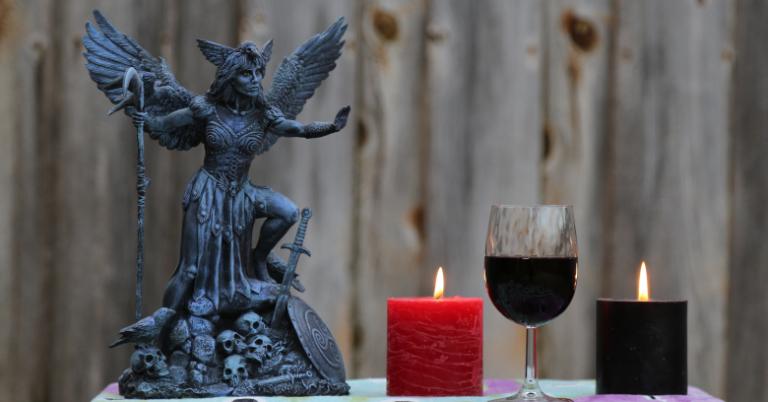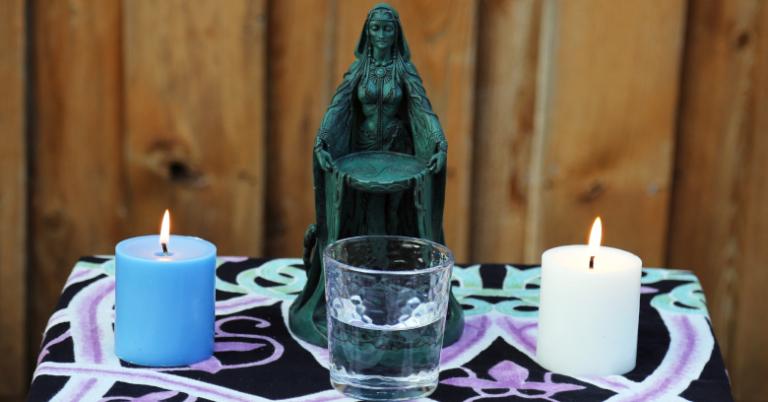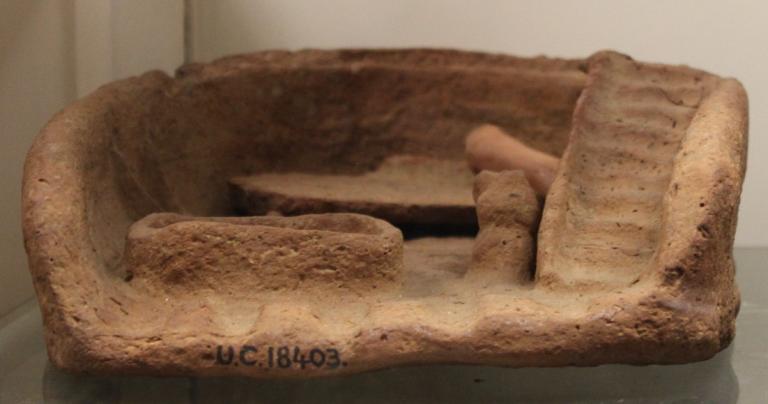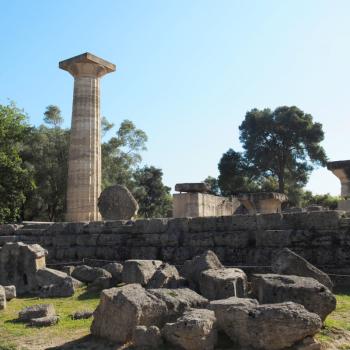Recently, a student in one of my classes had a question about offerings. The student is vegan and they were concerned they might be asked to make offerings of meat, or even perform an animal sacrifice. I’ve heard this question before – like this time, most of them are hypothetical. Gods rarely ask us to offer something that would go against our ethics.
If we lived in a Pagan society where offerings were a regular part of our culture, we’d grow up seeing how this is done on a regular basis. We don’t, so Pagans and polytheists have to learn from what we know about our ancestors, and from each other.
In 2016 I wrote Why We Make Offerings, a post that lists the reasons why offerings are good and necessary. That post stands on its own. In this post, I want to discuss what we offer, and why.

Food and drink
Most offerings to the Gods, to our ancestors, and to other spirits are offerings of food and drink. We make these offerings in part because that’s what our Pagan ancestors did. If it worked for them, it will probably work for us. Or at least, that’s a good place to start.
Offering food and drink is an act of hospitality. If you invited your favorite entertainer or political leader to your house, you would greet them, offer them a comfortable seat, and then offer them something to drink and/or to eat. You would practice good hospitality. This was especially important in ancient times, when traveling was slow and dangerous and accommodations were often difficult to find. Some Gods – notably Zeus and Odin – were known to disguise Themselves as lowly travelers to test the hospitality of Their followers. Those who were generous were rewarded. Those who were not… were not.
Beyond hospitality, the act of sharing food and drink brings people together. It’s why family meals are important, and why church potlucks are a common practice in churches across the religious spectrum. When we share food and drink with our Gods, we proclaim that we are family – we belong to Them.
Offer what’s good
OK, but what kind of food and drink? Traditionally, people have offered what they had, especially what they had that was of value. In our time, libations of beer, wine, and spirits are common. While few things are truly rare in the contemporary West, these are less common than most other drinks. And there is historical precedent for offering them, at least in certain cultures – that the Egyptians offered beer to their Gods is literally carved in stone.
Some deities are known to prefer certain drinks. The Morrigan is known for liking red wine (it’s not hard to guess why) but in my experience, also good whiskey. Cernunnos almost always says “I’ll have what you’re having” – if it’s good enough for me, it’s good enough for Him. I have been asked to make special, specific offerings – so far I’ve always been able to do so when asked. But these are one-time things, not on-going demands.
Except…
The Neoplatonists say the Gods need nothing. Whether that’s true or not, it’s pretty obvious that beings who are the mightiest of spirits have no tangible need for token amounts of food and drink. A few years ago I started thinking about this, and decided to try to find something more useful to offer. I was told in no uncertain terms that my weekly libations were to continue as is. The Gods may not need offerings of food and drink, but clearly They want them.
And that’s reason enough to give them.

When you’re asked for something you can’t give
Sometimes, though, we’re asked for something we don’t feel right about giving. Or if we’re not explicitly asked, we feel pressured to do it because that’s what other people are doing.
The first question is whether this is something you can’t give without violating your ethics, or just something you don’t want to give up.
Danu asks very little of me, but in 2014 She asked me to sacrifice something I didn’t really want to give. There were no ethical considerations involved – I just wanted to hang on to it. She insisted. I relented and gave it to Her. Nine years later, I’m still convinced I did the right thing.
On the other hand, if you’re an alcoholic and need to stay away from alcohol, offering wine is a problem. If you’re a vegan, offering meat is a problem.
If you’re asked to offer something that you can’t give, simply say “I can’t do that, will you accept this instead?” In most cases, the answer is yes. If the answer is no, ask what else you can give.
What’s more important, obedience or staying true to your virtues? It is rare that our Gods “test” people with dilemmas like this (though I know it happens on occasion). On the very few occasions I’ve been asked to do something I didn’t think I could honestly do, I said no. As with the special offering to Danu, years later I’m still convinced I did the right thing.

A word on animal sacrifice
I’ve never made an animal sacrifice. I’ve never been asked to make an animal sacrifice. I doubt I ever will. It’s not part of my religion. But I have friends for whom it is an important part of their religion.
I explored this topic in 2014 in a post titled Sacrifice and the Fear of Real Gods. If you’re interested in the practice, go read it.
Our ancestors made animal sacrifices in part because that’s what they had to offer. And also because in the time before refrigeration, eating a whole cow before it spoiled was a challenge even for large families. Sacrifices were essentially a community barbeque with ritual. Offering some to the Gods reinforced the idea that They were part of the wider community.
The people I know who perform animal sacrifices raise their own animals. They’re treated with respect – they have far better lives and far cleaner deaths than the animals who are slaughtered to make your hamburgers and fried chicken. If you feel called to do this, learn to do it right or don’t do it at all.
More modern offerings
Your labor can be an offering, if you ritualize it. Money can be an offering, if it’s intentional and if it represents a true sacrifice and not an attempt to buy favor. Really, anything can be an offering if it’s given in reverence, and in the spirit of hospitality and reciprocity.
The longer I practice and the more I make offerings of food and drink, the more I’m convinced that the ritual involved is what’s really important – at least for us.
What to do with offerings
I discussed this as part of this 2020 post titled Approaching the Gods with Offerings and Service. To summarize, sometimes you leave them on the ground. Sometimes you burn or bury them. Sometimes you consume them yourself – what the Egyptians called “reversion of offerings.”
Just make sure you don’t leave food that will be harmful to animals likely to eat it. I find it disrespectful to put offerings in the trash or pour them down the drain. That presents a hardship for some who live in urban environments, and some people I respect see no problem with it. If in doubt, ask first.

Give what you have
I’m always happy when people ask what they should offer. It shows they’re taking it seriously.
Our Gods are not capricious and They are not cruel. They can be demanding, but in my experience – both firsthand and secondhand – They rarely ask us for offerings we cannot give. If you have nothing else, clean water is almost always an acceptable offering, especially if you’re pouring it on the ground in a libation. This is what I do most times when I’m traveling, though sometimes I’ve found a bottle of wine or whiskey and offered it.
Offerings are one of the core spiritual practices for me, and for many Pagans and polytheists. They help me maintain relationships with my Gods, my ancestors, and other persons in my life.
Offer food and drink.
Offer what you have.
Make offerings to the Gods.

















